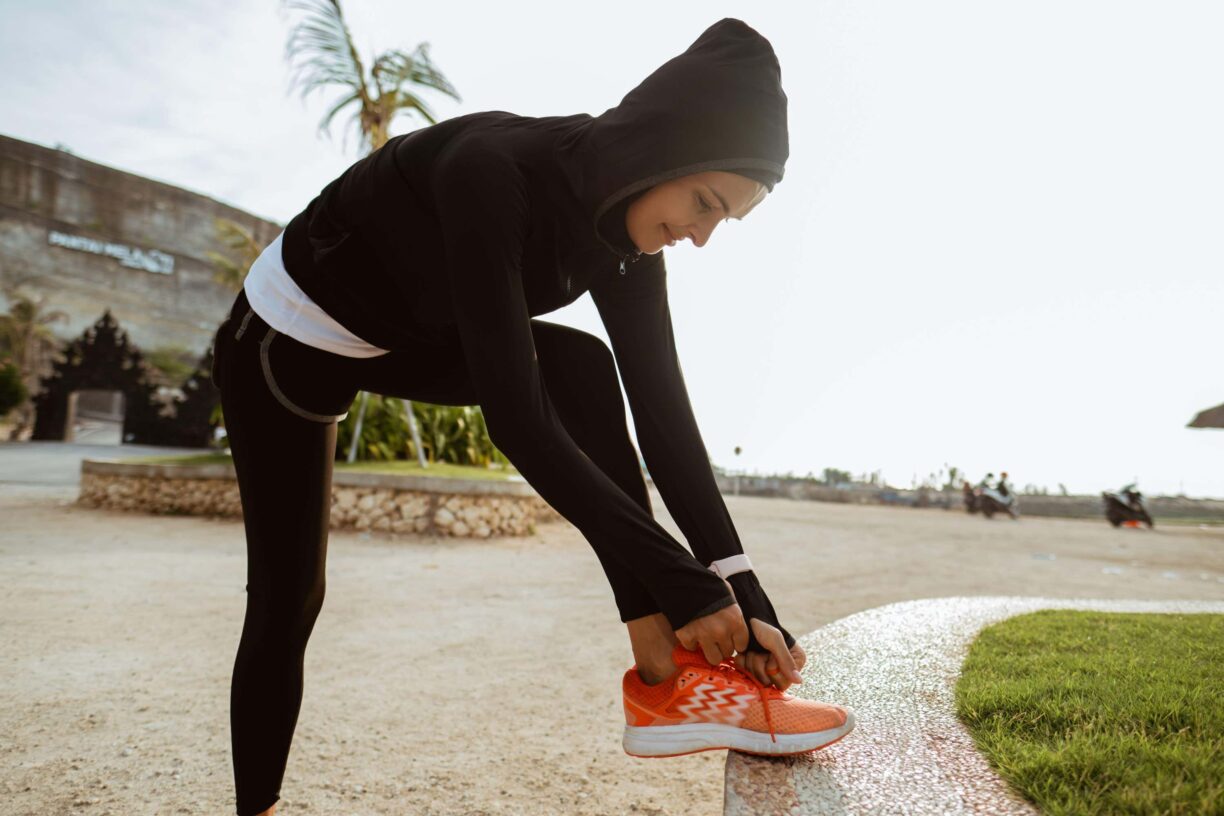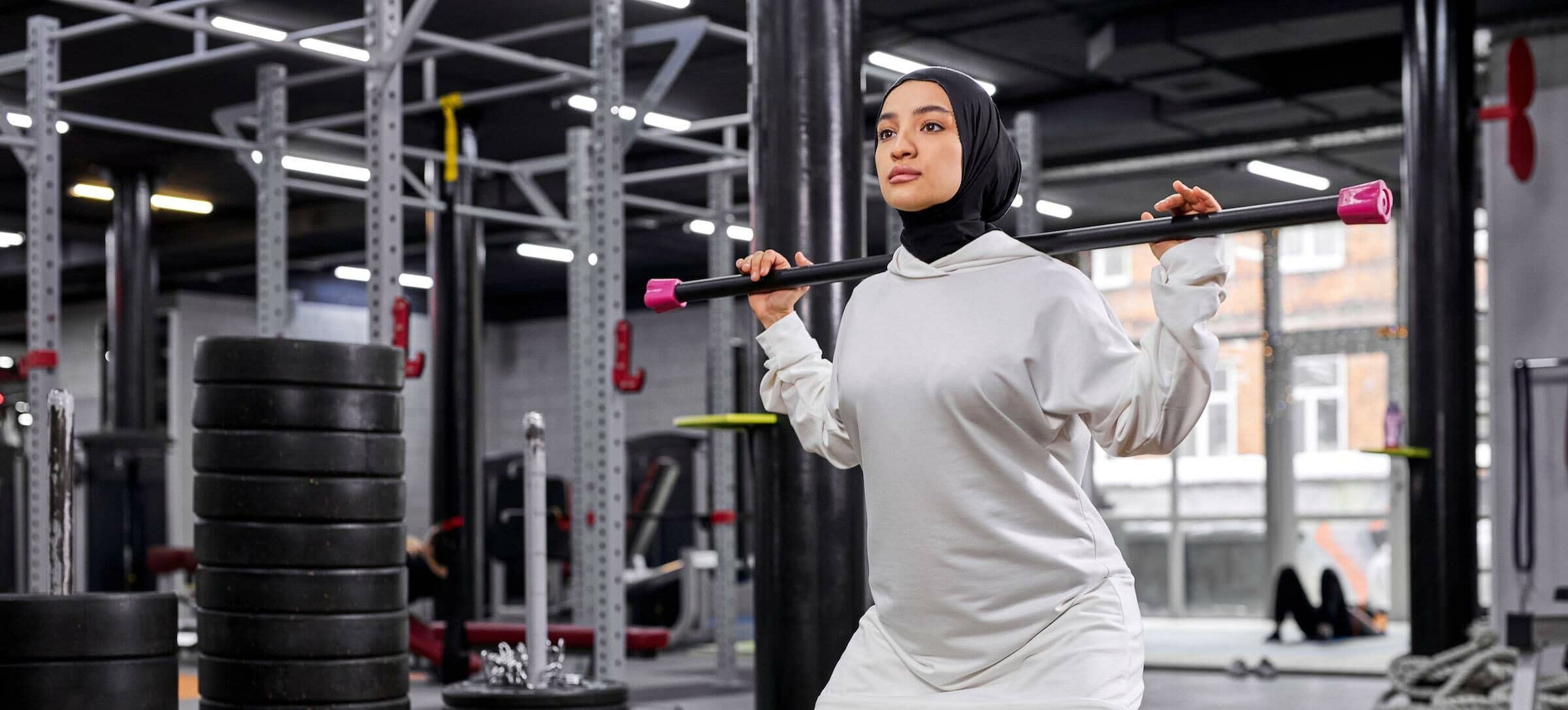Ramadan, a time when Muslims across the world focus on community, self-reflection and devotion, takes place between 2nd April and 1st May.
It’s a time of fasting, however, those wanting to continue their fitness routines can still do so safely and sustainably.
Bulk™ ambassador and fitness influencer, Maymah Makda, shares her advice on how to adapt fitness routines when fasting this Ramadan.
Ramadan is the holiest time in the year for Muslims around the world. It is a time of self-reflection and devotion in becoming a better person spiritually.
Muslims fast from sunrise up until sunset, for 30 days consecutively, meaning that there is a very short window in which we can eat and drink. However, fitness routines can be upheld with a little consideration around three key areas: exercise, nutrition and sleep.
Exercise
@maymah.lifts Don’t skip your warmup sets folks!! #fyp #hijabilifter #gymtok #deadlift
During this month, I wouldn’t recommend it as the best time to push for new goals, such as one-rep maxes or PB’s, but rather a time to adapt your routine to maintain fitness and muscle instead.
Short, low-intensity workouts are best suited during this time – personally, I cut my compound movements short and only do two working sets as opposed to four, with half the weight I’d be lifting if I was not fasting.

When it comes to accessory movements, I prefer doing working sets of eight reps at a lighter weight, as the goal here is to maintain muscle mass, as opposed to increasing strength or muscle growth. Intense cardio is definitely not something you want to do when fasting because of the risk of dehydration.
I tend to train maybe just once or twice a week when I’m fasting and do one upper body workout and one lower body workout, as it’s very unrealistic for me to be able to fit in a workout on a daily basis.
Nutrition
Nutrition is a very important element, as instead of being able to top up our hydration and macros throughout the day, we can only do this at night.
Ideally, I would recommend having one main meal at sunset followed by snacks after prayers then try and catch up on sleep, with another small meal pre-sunrise.
Get a good amount of slow-acting carbs in as they can help make you feel fuller for longer, which is great for the pre-sunrise meal. Also, don’t neglect your protein. Personally, I opt for Clear Whey Isolate alongside my evening meal. This’ll also ensure that you hit your macros.
Sleep
Some Muslims are able to eat throughout the night if they stay awake, but for people like me who are still having to go to work, it’s imperative we get our sleep too.
For me, working long shifts as a therapeutic radiographer for the NHS in the day means I can’t sleep in the middle of the day, so I’ve got to time everything effectively.
Top tips
For those wanting to maintain their fitness during Ramadan, I’ll leave you with my five top tips:
Stay hydrated. It seems obvious, but this is especially key when fasting for Ramadan, as there are only a few hours to fit in a full day’s worth of hydration.
Time your workouts effectively. Conserving your energy is key, so consider all you have to do in a day, whether that’s work, school or simply spending time with family and friends.
Don’t use all your energy on a workout in the mid-morning, as you’ll burn out very quickly. Instead, I’d recommend working out for one hour pre-sunset.
Keep things simple in the gym. When in the gym, keep things super simple – no supersets, no drop sets, no reps to failure. You’re not trying to pass out.
Plan your meals. Breaking fast at sunset (Iftar) is usually a time spent reflecting with family and friends, and after a long day, it can be easy to binge – especially if you’re staying up late into the night to fit in more meals or snacks before Suhoor (the pre-dawn meal). Plan your meals ahead of time to stay on top of your nutrition.
Carbs and protein are your friends. Ensure you’re fuelling your body with good, nutritious food that’ll give you sustained energy. It’s tempting to turn to sugary foods, but you’ll soon crash after. Carbohydrates will power you through, whilst protein will help you sustain muscle mass.
